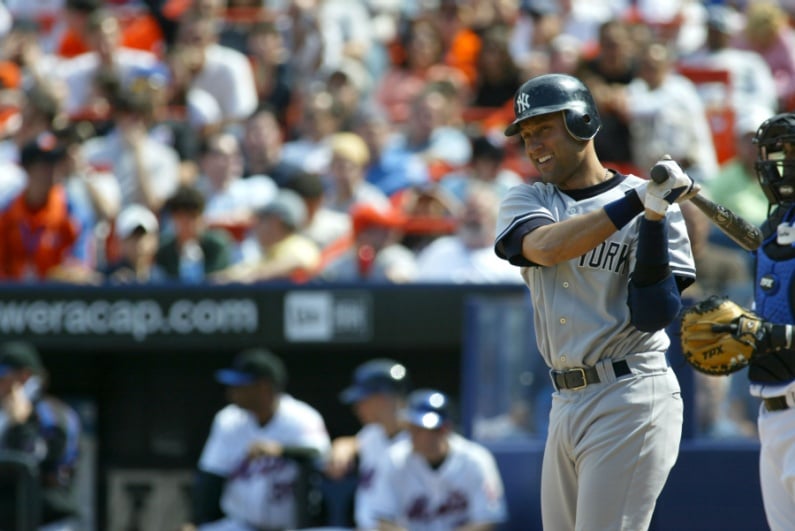The story of Pete Rose
Pete Rose is MLB’s all-time leader in hits, a three-time World Series champion, and one of the most successful baseball players of all time, yet he is permanently ineligible for the Hall of Fame.
Why is that, you might be asking? How about gambling at least $10,000 a day as an active player and manager, including placing bets on his own team?
it’s highly unlikely he ever escapes the mire that shadows his legendary career
It’s hard to hate the fun-loving figure that is good old “Charlie Hustle,” but it’s highly unlikely he ever escapes the mire that shadows his legendary career.
This is the story of Pete Rose: the MLB legend that is being erased from the sport.
A legend charred by history
Born in Cincinnati on April 14, 1941, Rose was one of four children in his family. He played football and baseball in high school but was forced to repeat a year after he was not promoted to the varsity football team and became fed up with school.
By the time he was a senior in high school, he had used all four years of his athletic eligibility. He joined a local baseball circuit and ended up hitting .626. His uncle happened to be a scout for the local Cincinnati Reds and recommended his nephew to the team, who had recently traded several young prospects away and had space on their roster.
the best decision in the franchise’s 142-year history
Cincy took the chance and signed Rose to a professional contract as soon as he finished high school. That ended up being arguably the best decision in the franchise’s 142-year history.
Rose had the chance to make his first impression during a 1963 Spring Training game when starting second baseman Don Blasingame tweaked his groin. He entered the action in the ninth inning of a 0-0 affair and went 2-2 with two doubles and scored the game’s lone run in the 14th inning in a 1-0 win.
Rose got his nickname “Charlie Hustle” later during that Spring Training session, though there are split reports on how it came about.
According to one version, Hall of Famer Whitey Ford gave it to him during a clash with the New York Yankees because Rose sprinted to first base after drawing a walk. Another is that Ford created the title when Rose, playing in left field, climbed the fence and leaped for a ball that Mickey Mantle crushed well beyond his physical reach.
The Young Reds star finished Spring Training so impressively that he was given a spot on the team’s roster and soon became a featured member of the lineup. He ended the year winning 17 of 20 first-place votes in the National League’s Rookie of the Year contest and announced himself as a star of the future.
Becoming a star
Rose joined the US Army Reserves after his first year and spent the next 12 months at Fort Knox and Fort Thomas in Kentucky. Towards the end of his commitment, he served as a cook and would come in early so that he could leave in time to make it to his Reds games.
His second year did not go exactly to plan, and he was benched late in the year following a prolonged struggle at the plate. He decided to spend the offseason playing in a Venezuelan league to get more reps and came back better than ever, making his first All-Star team.
he became such a force at the plate that he led the National League in batting average (.335)
A few years later, he became such a force at the plate that he led the National League in batting average (.335). That included 22 and 19-game hit streaks and saw him finish second to Bob Gibson in MVP voting.
The pinnacle
All of that was just the prelude to the defining moments of Rose’s career in the 1970s as a member of the “Big Red Machine,” the Reds’ nickname throughout the decade. Playing alongside all-timers like Johnny Bench, Joe Morgan, and Tony Pérez, Rose helped lead his team to three World Series championships and won a World Series MVP and NL MVP.
The 1975 World Series win was Cincy’s first since 1940. During the seven-game series, Rose hit .370 at the plate and was instrumental in guiding the team to success. He was later named Sports Illustrated’s “Sportsman of the Year” for his efforts.
a 44-game hit streak, the third-longest in league history
On May 5, 1978, Rose became the 14th MLB player ever to record 3,000 hits. Later that year, he racked up a 44-game hit streak, the third-longest in league history and one shy of Baltimore Orioles’ Willie Keeler’s NL-record 45-game streak.
Rose moved to the Philadelphia Phillies in 1979 and, despite missing the postseason his first year there, won the franchise’s first World Series in 1980. He played one year with the Montreal Expos in 1983 before returning to the Red in 1984-86, where he served as player-manager from ages 43-45. He even made the All-Star team while hitting .264 with 46 RBIs in 1985.
Things take a turn
Embodying the motto “rest is for the weary,” Rose transitioned right into the dugout full-time in ‘86, where he stayed until 1989 when his career—and legacy—turned on their head.
Commissioner of Baseball Peter Ueberroth called in Rose in February 1989 to discuss his life as a gambler. The fun-loving Reds manager copped to betting on football, basketball, and horse racing, but passionately denied the claims that he had bet on baseball games too.
Ueberroth left the matter for NL president Bart Giamatti, who had been elected as his successor. Three days after he was sworn in on April 1, he hired lawyer John M. Dowd to investigate Rose’s personal life.
Rose habitually bet at least $10,000 daily, which is worth roughly $26,700 today
Dowd talked to Rose’s friends and colleagues, along with a number of bookies and featured members at gambling dens. He discovered that Rose bet on 52 Reds games in 1987, his first full year as a non-player. He also found that Rose habitually bet at least $10,000 daily, which is worth roughly $26,700 today.
The Dowd Report, a compilation of Dowd’s notes during his investigation, said: “No evidence was discovered that Rose bet against the Reds.” However, in a 2002 interview, he said that he believed that Rose had bet on his own team to lose.
Responding to allegations
Rose denied all of the lawyer’s findings and refused to meet with the new commissioner to discuss the investigation. He also filed a motion in court to have the case scrubbed and said the commissioner was prejudiced.
The local Ohio court actually sided with Rose and granted a temporary restraining order, but the commissioner went through a federal court and had the order removed. Rose then decided to discuss a settlement rather than battle the case in federal court, since he thought that he would be less popular on a national scale than he would be in Ohio.
voluntarily added to baseball’s permanently ineligible list
The settlement ultimately saw Rose voluntarily added to baseball’s permanently ineligible list. The league, in return, did not publish official findings.
Rose had the opportunity to apply for reinstatement one year later and ultimately did, but there was no promise that it would be accepted. And to this day, it hasn’t.
In his 2004 autobiography My Prison Without Bars, Rose finally came clean and revealed that he bet on baseball games, including ones the Reds played he was still active. However, he maintained that he never bet on his team to lose.
Modern twists in the case
Rob Manfred, the league’s current commissioner, rejected Rose’s appeal for reinstatement in 2015 when he took over. Manfred said that Rose, who lived in Las Vegas at the time, had not been honest and was still betting on games despite being treated for gambling addiction in the ‘80s.
He applied for reinstatement again in 2020 and 2022, arguing that betting on his team to win had no effect on the final result, whereas the use of steroids or sign-stealing, which the Houston Astros did during the 2017 World Series, had direct effects. Neither appeal led to a response.
one of only two living ex-players to meet this fate
Pete Rose, despite being a member of the 1900s all-century team (voted on in 1999) and the league’s all-time leader in hits, singles, at-bats, games played, and outs, and being in the Reds Hall of Fame, is ineligible for the Baseball Hall of Fame. He is one of only two living ex-players to meet this fate.
Ironically, Rose’s ill-fated history made him the center of attention on January 1, 2023, when he was chosen to place the inaugural bet after Ohio legalized sports betting. His bet? The Cincinnati Reds to win the 2023 World Series.




